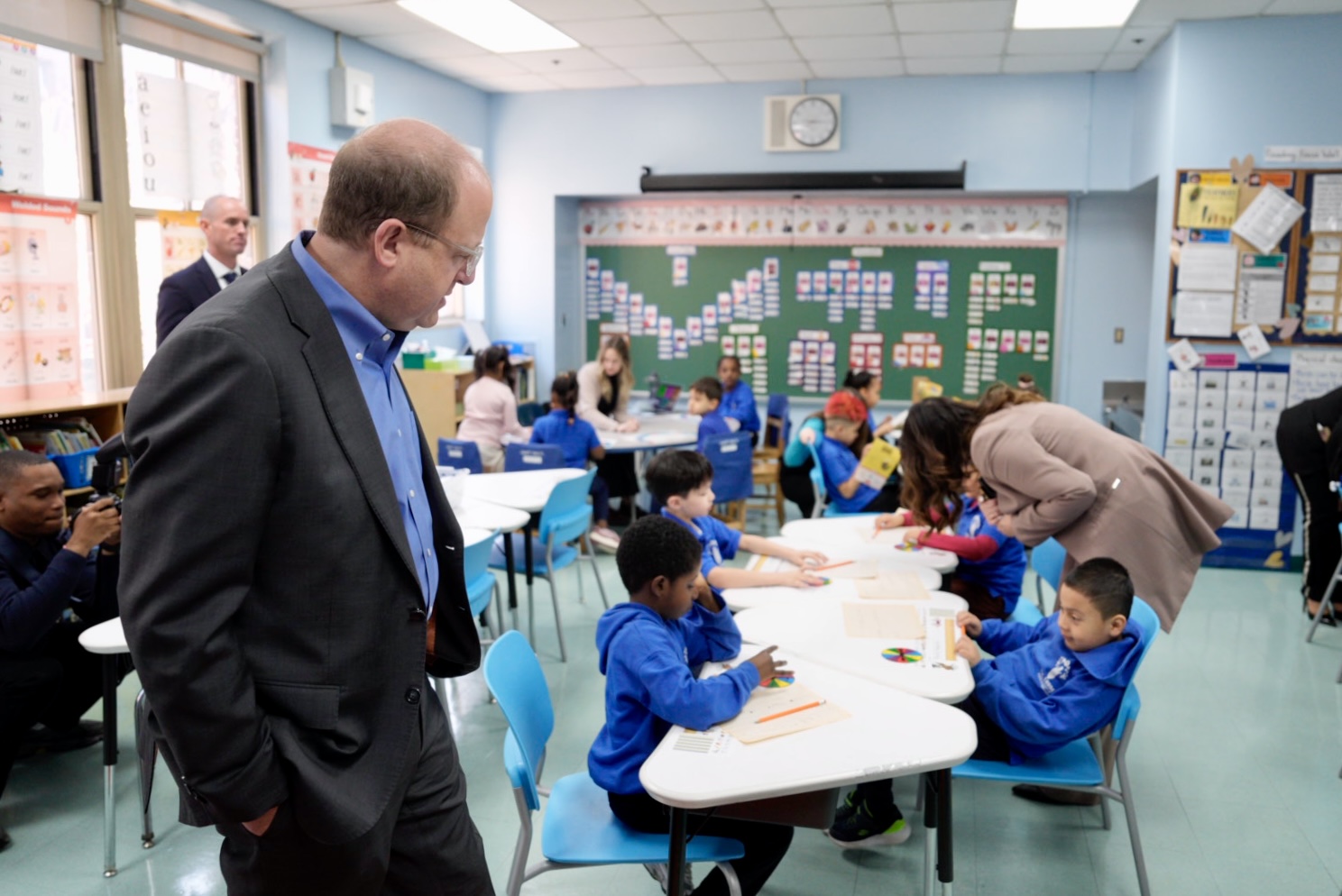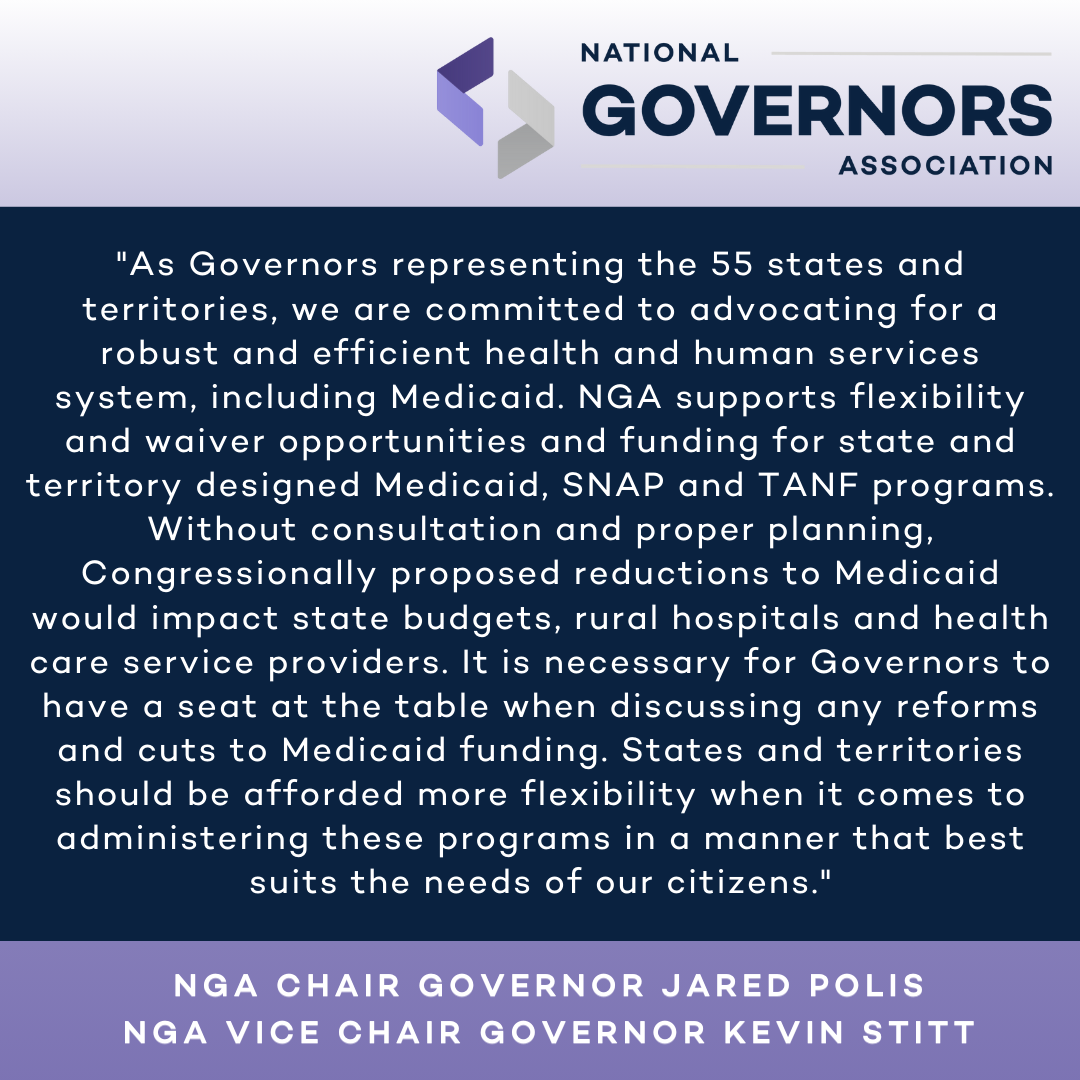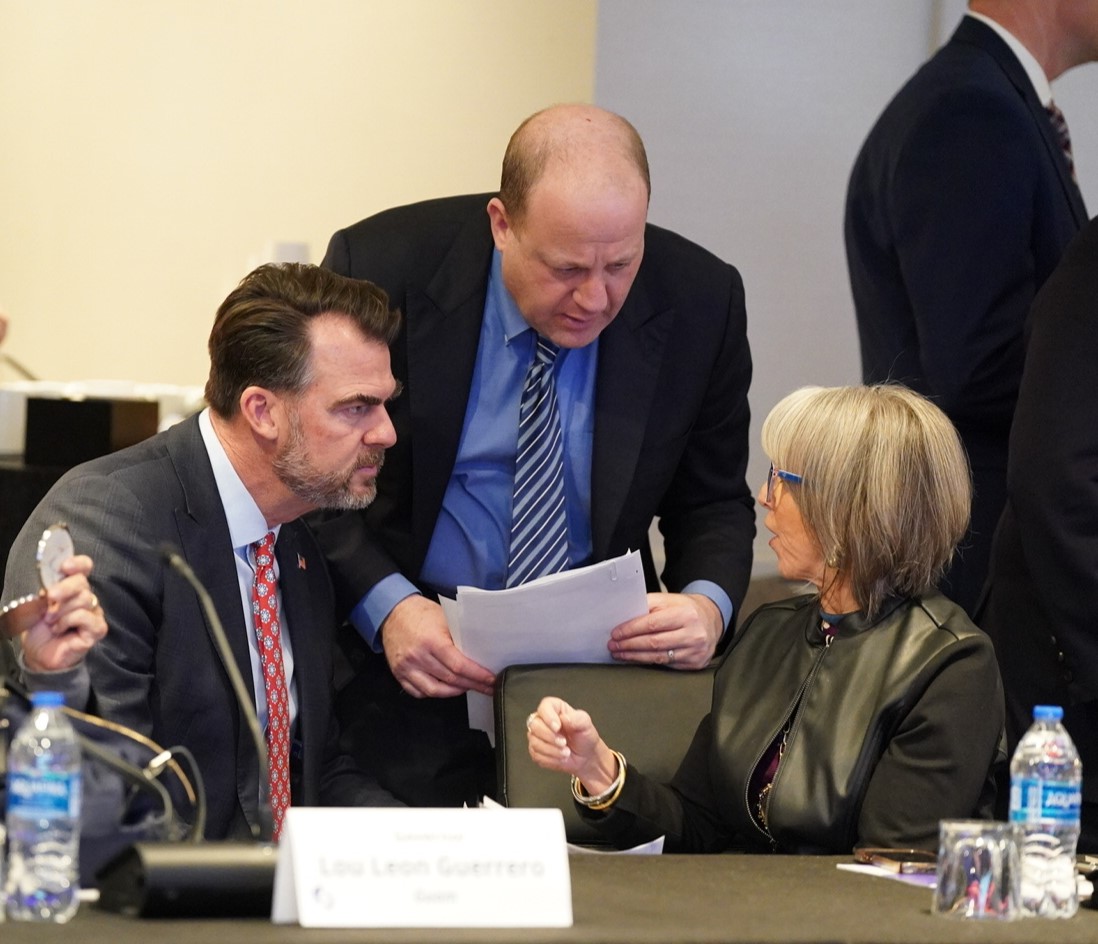Bipartisan laws like the Infrastructure Investment and Jobs Act and the CHIPS and Science Act are designed to support thousands of jobs in every state: Jobs upgrading infrastructure and expanding high-speed internet. Jobs in fields with critical shortages, like health care and cybersecurity. And jobs that are essential to competitiveness in the 21st century, like the manufacture of electric vehicles, microchips and semiconductors.

Governors banded together on a bipartisan basis to push for these laws, and now they are busy implementing them – breaking ground on long-planned projects.
But these investments can’t get off the ground without workers. To build a 21st century workforce prepared to succeed in promising new career fields, Governors are taking action on multiple fronts to advance skills-based hiring, work-based learning and other policies that open doors for workers.
Skills-based hiring
Millions of jobs require something 62% of Americans don’t have: a college degree.
Degree requirements make sense for some fields. But for too many job opportunities, a degree requirement is a barrier that causes employers to overlook qualified applicants who have gained skills through vocational training, community college, military service, and on-the-job experience.
Over the past year and a half, Governors in more than a dozen states have taken steps to remove this barrier in the public sector by removing bachelor’s degree requirements.
In most cases, the public sector represents the largest employer in states, so these moves by Governors from across the political spectrum can make a big impact.
Pennsylvania Governor Josh Shapiro issued an executive order on his first day in office in 2023 removing four-year degree requirements from roughly 92 percent of positions in state government – opening up approximately 65,000 jobs.
NGA Chair Utah Governor Spencer Cox’s action to eliminate four-year degree requirements for state jobs opens up an estimated 98 percent of their public sector positions. Following a similar executive order from North Carolina Governor Roy Cooper, reports show approximately 75% of current state job classifications do not require a traditional postsecondary degree.
Also in 2023, Ohio Governor Mike DeWine issued an executive order building on Ohio’s skills-based hiring practices — outlining plans for a comprehensive review of public sector job classifications to remove unnecessary barriers and launching a new skills-based search function for the state’s career website, to make it easier for applicants to showcase their skills
In addition to filling vacancies critical to state governments’ ability to serve citizens, Governors aim to spur the private sector to open the door to the millions of Americans who are “Skilled Through Alternative Routes” – or STAR workers. More than 70 million workers, half the U.S. workforce, are considered STARs, according to Opportunity@Work, the worker advocacy nonprofit that coined the term.
Tapping the vast STAR talent pool could help both workers and companies – and address shortages in industries critical to U.S. competitiveness and security, like manufacturing, construction, and cybersecurity.
This momentum for innovation in response to a tight labor market and a vision for economic opportunity has accelerated the national policy conversation around skills-based hiring.
Some companies have already made this change. Major employers including Accenture, Apple, General Motors, Google, IBM, Microsoft, and Walmart have dropped some degree requirements in favor of skills-based hiring. And the trend is growing. The percentage of job listings requiring four-year degrees declined from 51% in 2017 to 44% in 2021, according to labor market analysis from the Burning Glass Institute.
Job training and work-based learning
In 2024 State of the State addresses, Governors detailed an array of innovative job training initiatives – including apprenticeships, community college programs, and work-based learning initiatives – designed to prepare workers for growing opportunities to fill jobs of today and tomorrow.
In the growing electric vehicle field, Kentucky and South Carolina have both launched innovative programs to meet students where they are, and set them on a pathway to land new jobs coming to these states.
In 2022, South Carolina Governor Henry McMaster launched the Revolutionizing Electric Vehicle Education, or REVVED, collaborative. Through REVVED, Greenville Technical College, Spartanburg Community College and other schools are coordinating with the industry to design training, tailor-made for future jobs – with an emphasis on digital classes that can reach rural students, veterans and other underserved workers.
In Kentucky, Governor Andy Beshear has directed millions in funding to train Kentuckians for the 7,000 jobs expected to open up when two new EV battery plants come online in his state. That includes a $25 million investment in Elizabethtown Community and Technical College to support its cutting-edge EV training center.
Job training initiatives are also a game-changer when it comes to addressing shortages in critical fields like health care – where nearly 20% of the workforce has left positions since 2020. Between retirements and pandemic-driven burnout, the American Hospital Association projects the U.S. could face a shortage of up to 3.2 million health care workers by 2026.
States are working together on solutions through NGA’s Next Generation of the Healthcare Workforce Project, which kicked off with 16 states in 2022 and now includes 26 states and territories. Health officials from these states meet regularly to share ideas and to talk directly with representatives from the health care and education sectors, labor and workforce development agencies and licensing and regulation officials.
This kind of coordination is the key to initiatives like Care Forward Colorado, which Governor Jared Polis launched in 2022 in conjunction with the state’s community college system. Through Care Forward Colorado, students can receive free training at 19 community and technical colleges for certification in professions like nursing assistant, emergency medical technician, pharmacy technician and medical assistant.
In its first year, the program increased enrollment in the covered sectors by 20% — training 3,000 students, with an additional 5,000 enrolled. It’s the kind of innovation that could make the difference in whether a hospital remains open, not to mention its impact on community college enrollment.
Digital skills training
Digital technology has changed the education and employment landscapes.
A recent study found that nearly two-thirds of new jobs involved either a high or medium level of digital skills. Even existing jobs previously classified as low digital engagement – like tool makers and mechanics – transitioned to the medium range of digital requirements. The rise of artificial intelligence technology, remote work and other trends have supercharged this dynamic. Even finding a job takes computer skills. Yet another study shows that more than one-third of American adults have limited or no digital skills.
Closing the digital gap is a top priority for Governors. States are tackling the digital divide through a number of policies, including boosting K-12 computer science education and expanding broadband access to underserved and rural communities.
Governors coordinated to share best practices through the NGA Workforce Innovation Network, or NGA WIN for short. Through this program, 14 states consulted with companies like Intel, Microsoft and Walmart to equip workers in their states with the digital skills required to participate in today’s economy.
Oklahoma Governor Stitt invested the state’s NGA WIN grant to work with state agencies to identify communities with the greatest digital skills gaps. Their research determined that each additional point added to an Oklahoma worker’s “digital skills score,” is associated with an extra $781 in annual earnings. Armed with this information, Governor Stitt’s administration is partnering with an Oklahoma company to find rural jobseekers interested in remote work and connect them with digital training to put them on the company’s job track.
Putting it all together: Skills-Driven States
To help Governors’ offices and other senior state officials better connect skills-based training to skills-based hiring practices, NGA partnered with Jobs for the Future (JFF) to launch the Skills-Driven State Community of Practice in 2022.
A key component of the project is Learning and Employment Record (LER) systems –essentially digital resumes with secure, verifiable, and readily accessible records of people’s skills, educational experiences and work histories. By enabling the adoption of IT systems that support digital learning and employment records, the initiative aims to make pathways to good careers more broadly accessible to a wider segment of the workforce and reduce workforce inequities by focusing on what workers can do, not on the degrees or credentials they’ve earned.
With the support of Walmart, 12 states participated in the program – receiving grant funding and NGA technical assistance while collaborating with peers and stakeholders to explore best practices to prepare their states’ employers, education and workforce systems, data systems and policies to implement skills-driven practices – including digital wallet and Learning and Employment Record (LER) systems.
With additional support from Walmart, a second phase launched in 2024. Building on the previous initiative, the Skills in the States Community of Practice brings states to the table as employers – aiming to harness states’ public sector hiring practices to generate a national blueprint for inclusion and innovation in response to workforce shortages. In partnership with Opportunity@Work, Boston Consulting Group, and Burning Glass Institute, the Skills in the States Community of Practice includes 22 states and one territory and will convene throughout 2024 and early 2025 to identify and share emerging best practices, challenges, successes and lessons learned – culminating with the development and implementation of customized state action plans.
This cohort of future-focused state teams gathered in April for a national convening in Washington, D.C. – engaging federal agency leads, private sector industry partners and experts in the field of skills-based hiring to outline the vision, best practices and strategic implementation strategies for state agencies to execute skills-based hiring initiatives.
Next steps
Check NGA’s Skills-Driven States resource page for updates.













